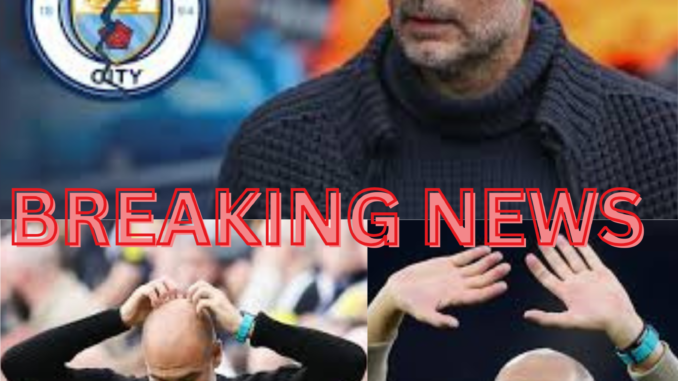
While Guardiola’s legacy at Manchester City is indisputable, his uncertain future—and an ageing squad—has raised concerns that without a clear long-term plan, the club’s success could be at risk in the coming years.
Over the last decade, Manchester City have risen to dominance, with Guardiola at the helm driving the club to unprecedented success in English football. Under his leadership, City have captured multiple Premier League titles, domestic cups, and, most recently, their first Champions League trophy.
Few would dispute Guardiola’s place as one of the greatest managers in Premier League history, if not the greatest. However, with many of City’s core players now in their 30s, some board members feel the need for a manager ready to commit to a three-year rebuilding plan to keep the club competing at the highest level. These executives are urging clarity on Guardiola’s future—either a renewed long-term commitment or the appointment of a successor to guide the club into a new era.
Manchester City now find themselves at a crossroads. The club’s recent success has relied on a squad of elite, experienced players performing at their peak for years. Yet the ageing core poses a challenge. Kevin De Bruyne is now 33, Ilkay Gundogan and captain Kyle Walker are 34, and Ederson has reached 31. Bernardo Silva, Mateo Kovacic, John Stones, and Stefan Ortega have also crossed into their 30s, with Jack Grealish and Nathan Ake set to join them next year.
City must decide whether to gradually integrate younger talent or risk a sudden decline if these players reach the end of their peak years without successors. Many within the club believe that delaying this transition could threaten their competitiveness, especially without a manager committed to a long-term strategy.
Guardiola’s current contract ends in 2025, and while there has been speculation about a possible one-year extension, some executives are wary that a short-term renewal could only defer the substantial overhaul City needs. A brief commitment could also hinder long-term planning, potentially compromising the club’s future success.
To address this, City’s leadership is considering whether to encourage Guardiola to commit to a longer tenure to lead the squad’s renewal, or to step aside for a new manager prepared to shape the club’s next chapter. Guardiola has previously expressed interest in exploring new challenges, and with his legacy at City firmly established, he may see this as an opportunity to pass the baton.
For Manchester City, the next few months will be crucial. Whether Guardiola agrees to a new long-term deal or a successor steps in, the club’s leadership remains focused on one goal: keeping City among Europe’s elite by evolving the squad for the future. In either case, City knows it must act now to prepare for life after Guardiola and ensure that the club remains a force competing for top honors well into the next decade.
Leave a Reply